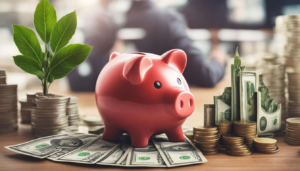In a context marked by geopolitical tensions, trade wars and global threats, investors must adopt a strategy that privileges resilience, diversification and sustainability. Volatility is becoming a constant, and with it comes the need to choose assets that offer protection and long-term growth.

One of the most solid options in these times is investment in safe-haven assets, such as gold, silver, and other precious metals. These assets tend to retain their value or even increase in value when financial markets become uncertain. In addition, cryptocurrencies such as Bitcoin have been considered by some as a new form of haven, with a much higher risk due to their volatility.
Another strategic alternative is to invest in defensive sectors, such as healthcare, utilities, and consumer staples. These sectors tend to maintain stable demand even during economic downturns, making them more resilient to market turbulence. Biotechnology companies, pharmaceuticals and food suppliers are examples of defensive bets.

Cutting-edge technology, especially in areas such as artificial intelligence, cybersecurity, and automation, also represents a relevant opportunity. In a world that is increasingly digitized and concerned about information security, these industries are constantly growing, often regardless of the geopolitical situation.
Sustainable investment is also gaining ground. Companies committed to responsible practices tend to show better long-term performance, and the funds that invest in them are often less vulnerable to regulatory or reputational risks in a more demanding global environment.

Also, the importance of geographic and sector diversification should not be underestimated. Investing in emerging economies with positive projections, or in regions less exposed to major global stresses, can mitigate risks. Using ETFs and global funds allows investors to access this diversification without requiring large sums or complex active management.







